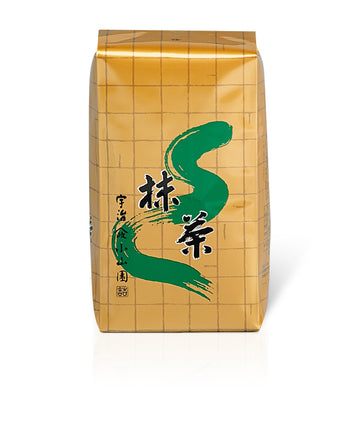Maki-No-Shiro
-
Express tracked delivery:Oct 21 - Oct 25
-
Free Shipping & Returns: On all orders over
CHF 500 ($650/£470)
Maki-No-Shiro
Premium culinary-grade green tea powder designed to enhance the flavor of soft drinks
Yamamasa Koyamaen presents its entry-level usucha tea, which delivers a refined and enjoyable experience even when consumed on its own. Additionally, it serves as an excellent ingredient for crafting matcha-based beverages and desserts. This tea boasts a rich and full-bodied flavor profile, characterized by a harmonious balance and subtle restraint. The astringency is imparted by amino acids, complemented by a slight bitterness that lingers in the aftertaste. When preparing this tea as an usucha, it is essential to maintain the water temperature between 80-85°C to avoid the emergence of undesirable bitter notes that may occur if the water is too cool.
Origin: Kyoto Prefecture, Japan
Interpretation of Maki no Shiro "槇の白":
The term "Maki" (槇) denotes cypress or cedar trees but is also broadly applied to evergreen coniferous species such as "hinoki" (Japanese cypress).
Contextual usage of "Mukashi" and "Shiro":
The suffixes "Mukashi" and "Shiro" appended to tea names carry connotations related to grading, distinguishing between thicker and thinner teas, respectively. Historically, "Mukashi" was the original term, with "Shiro" emerging later.
The term "Mukashi" is believed to derive from the combination of the Chinese characters for "twenty" (廿) and "day" (日), referencing March 20th (廿日) on the lunar calendar, traditionally regarded as the optimal date for harvesting the finest tea leaves.
The usage of "Shiro" became prevalent during the era of the third shogun, Tokugawa Iemitsu. It is said to have originated when feudal lords requested Uji tea masters to produce tea that was lighter or thinner in character. Although the precise meaning of "Shiro" at that time remains unclear, historical records indicate that preferences varied: Furuta Oribe favored a darker green tea, whereas Kobori Enshu preferred a lighter version. This distinction between 'dark' and 'light' teas may also be attributed to differing tea preparation methods in Uji.
While alternative theories regarding the origins of "Mukashi" and "Shiro" exist, it is widely accepted that "Mukashi" has been in use since ancient times, with "Shiro" becoming common from the Edo period onward. Subsequent generations of tea masters replaced the traditional term "Mukashi" with "Shiro," both of which had been used to denote tea grades, thereby establishing "Shiro" as the standard terminology.
Although the precise influence of historical developments in the tea ceremony on the meanings of "Shiro" and "Mukashi" remains uncertain, these terms undeniably reflect evolving trends and cultural shifts over time, continuing to be relevant in contemporary tea culture.
“All items are sold in their original packaging from the manufacturer. Sealed and unopened.”



